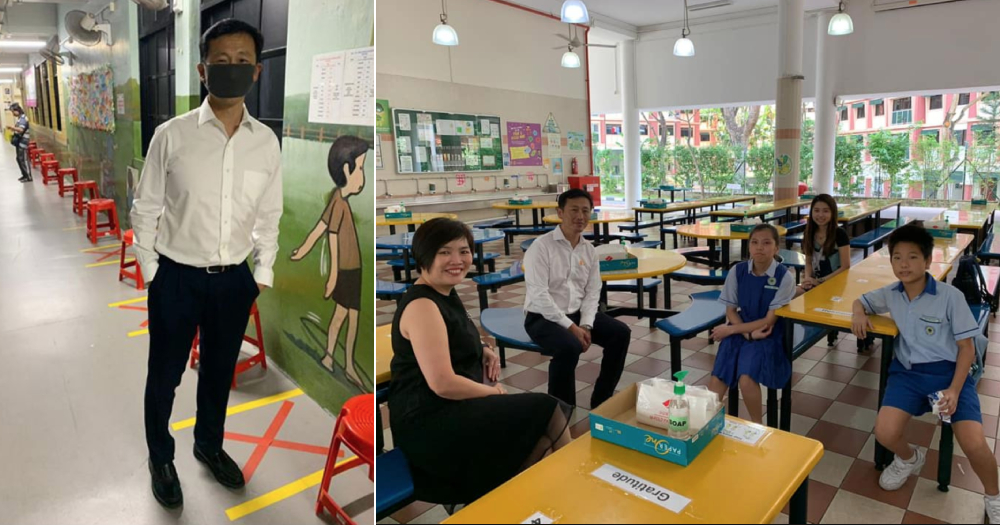Singapore's Education Minister Ong Ye Kung said the country was right in keeping schools open previously before it announced complete home-based learning from April 8 onwards.
Schools should be closed for a proper circuit breaker
And should a circuit breaker be done "properly", the country should "close and suspend" schools, he told Bloomberg TV in a live interview on Tuesday, April 7.
Ong was responding to a question if Singapore should have closed schools earlier.
Replying in the negative, he said it was "a correct decision not to close schools".
He further raised the examples of Taiwan and Australia, saying that they had managed to control the viral outbreak while keeping their schools open.
Explained earlier decision on not closing schools
Ong elaborated on Singapore's decision not to close schools earlier as well.
In response to another interviewer's question on the rationale of closing schools "at this point", Ong said there are three main reasons why Singapore has not decided to close schools "all this while" -- a move he described as "unlike many countries".
1. Children are not "vectors of transmission"
First of all, he said Covid-19 does not behave like influenza, where children are especially susceptible and can also be the vectors of transmission.
Saying that Covid-19 "behaves quite differently", he cited the evidence coming from many countries, including Singapore.
He further said that while young people can get infected, they do not seem to be as affected as adults, adding that there has been no evidence that they can become "vectors of transmission".
Therefore, this is the "fundamental difference" with influenza, and the basis of Singapore's decision so far, he said.
2. No student contracted Covid-19 from schools or campuses
Ong further elaborated on the sources of transmission for the 65 students that were infected as of Tuesday, April 7, saying a "great majority" contracted the virus overseas, from adult family members in their households, or from social gatherings outside.
The "number of students infected in schools or campuses has been zero so far", he said.
He added that while schools were kept open, precautions were taken to ensure the safety of the students.
3. Schools kept open for minimal disruption to lives of Singaporean families
Ong also said keeping schools open meant the lives of Singaporean families were not disrupted too much.
He mentioned two groups that will likely "suffer the most" with school closures.
They are the healthcare workers battling the virus on the frontline, and the vulnerable groups, such as students from lower income families.
But with the "circuit breaker" mode that Singapore is moving to, it will try to "crash the transmission rate" of the virus, he said.
Ong added that Singapore has "timed" the circuit breaker to take place during this "critical" time after the country experienced a higher number of local transmissions in the few weeks following the return of overseas Singaporeans -- a move which the government had advised.
Local transmission rate can be kept under control should everyone cooperates
Should such measures be successful, and "everyone cooperates", Ong said the country should be able to keep the local transmission rate under control.
He also added that he hoped businesses and schools could be reopened by May 4, and that life could return to a "certain normalcy" again.
Top image adapted via Ong Ye Kung/Facebook
If you like what you read, follow us on Facebook, Instagram, Twitter and Telegram to get the latest updates.
